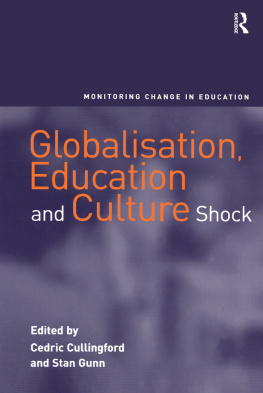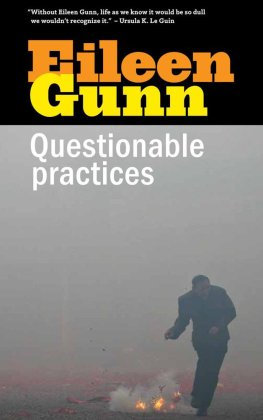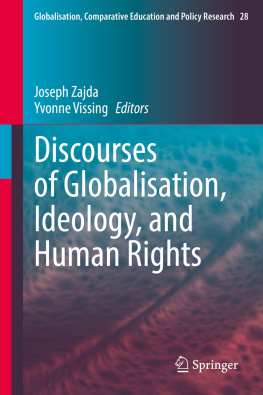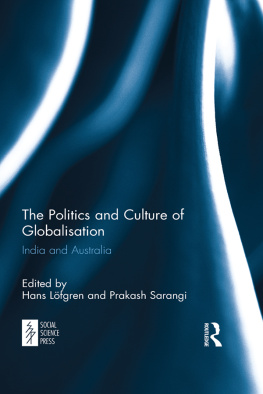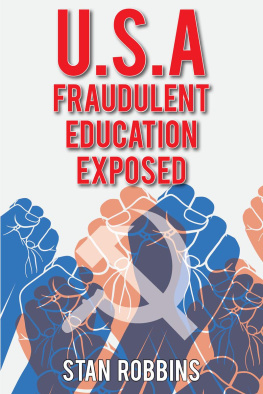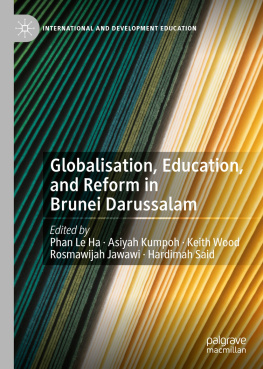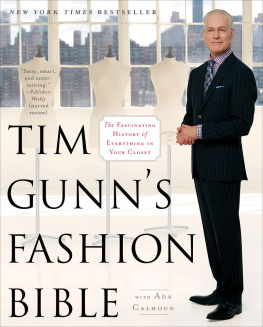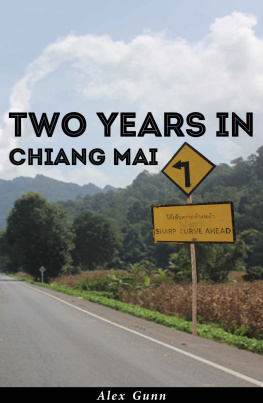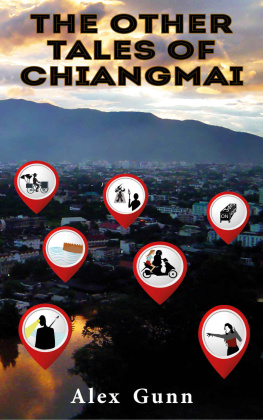Stan Gunn - Globalisation, Education and Culture Shock
Here you can read online Stan Gunn - Globalisation, Education and Culture Shock full text of the book (entire story) in english for free. Download pdf and epub, get meaning, cover and reviews about this ebook. year: 2017, publisher: Routledge, genre: Politics. Description of the work, (preface) as well as reviews are available. Best literature library LitArk.com created for fans of good reading and offers a wide selection of genres:
Romance novel
Science fiction
Adventure
Detective
Science
History
Home and family
Prose
Art
Politics
Computer
Non-fiction
Religion
Business
Children
Humor
Choose a favorite category and find really read worthwhile books. Enjoy immersion in the world of imagination, feel the emotions of the characters or learn something new for yourself, make an fascinating discovery.
Globalisation, Education and Culture Shock: summary, description and annotation
We offer to read an annotation, description, summary or preface (depends on what the author of the book "Globalisation, Education and Culture Shock" wrote himself). If you haven't found the necessary information about the book — write in the comments, we will try to find it.
Stan Gunn: author's other books
Who wrote Globalisation, Education and Culture Shock? Find out the surname, the name of the author of the book and a list of all author's works by series.
Globalisation, Education and Culture Shock — read online for free the complete book (whole text) full work
Below is the text of the book, divided by pages. System saving the place of the last page read, allows you to conveniently read the book "Globalisation, Education and Culture Shock" online for free, without having to search again every time where you left off. Put a bookmark, and you can go to the page where you finished reading at any time.
Font size:
Interval:
Bookmark:
Cedric Cullingford
University of Huddersfield, UK
Edited by
Andrew Hope and Paul Oliver
ISBN 07546 41724
Towards Renewal in Primary Education Policy
Kathy Hall
ISBN 07546 41791
Ranjit Arora
ISBN 07546 14417
Cedric Cullingford and Stan Gunn
University of Huddersfield, UK

2 Park Square, Milton Park, Abingdon, Oxon OX14 4RN
711 Third Avenue, New York, NY 10017, USA
Product or corporate names may be trademarks or registered trademarks, and are used only for identification and explanation without intent to infringe.
Globalisation, education and culture shock. -(Monitoring
change in education)
1. Multicultural education 2. Culture shock 3. Globalization
Social aspects
I. Cullingford, Cedric II. Gunn, Stan
370.1'17
Globalisation, education and culture shock/Cedric Cullingford and Stan Gunn (eds.).
p. cm. --(Monitoring change in education)
Includes bibliographical references and indexes.
ISBN 0-7546-4201-1
1. Education--Social aspects. 2. Education and globalization. 3. Multicultural education.
I. Cullingford, Cedric. II. Gunn, Stan. III. Series.
302.43--dc22
- ii
Font size:
Interval:
Bookmark:
Similar books «Globalisation, Education and Culture Shock»
Look at similar books to Globalisation, Education and Culture Shock. We have selected literature similar in name and meaning in the hope of providing readers with more options to find new, interesting, not yet read works.
Discussion, reviews of the book Globalisation, Education and Culture Shock and just readers' own opinions. Leave your comments, write what you think about the work, its meaning or the main characters. Specify what exactly you liked and what you didn't like, and why you think so.

